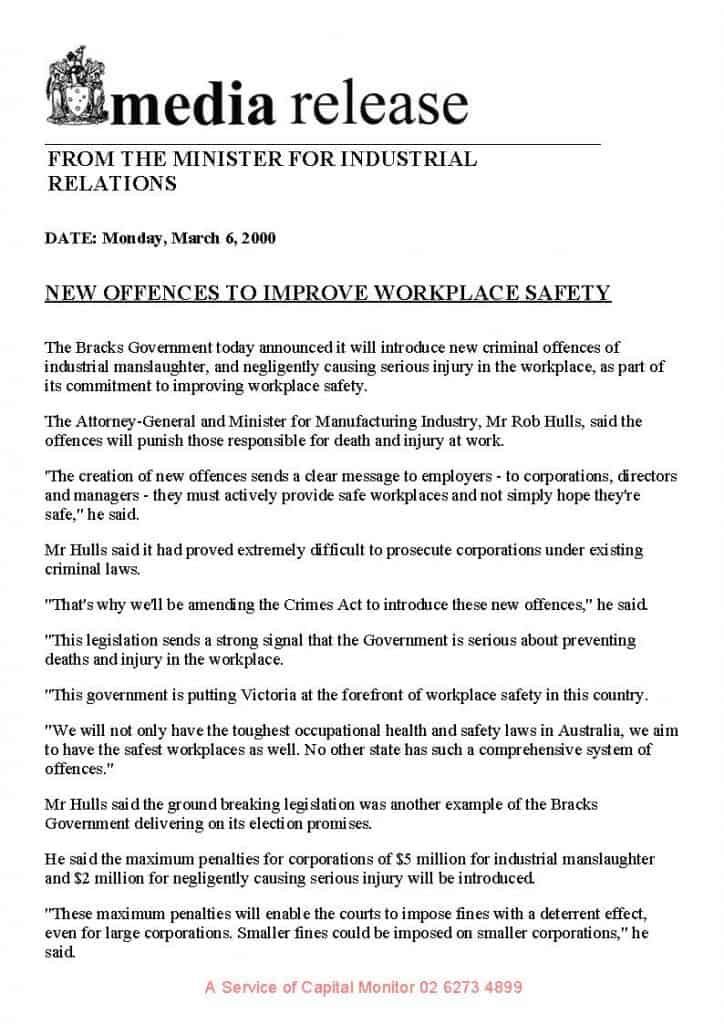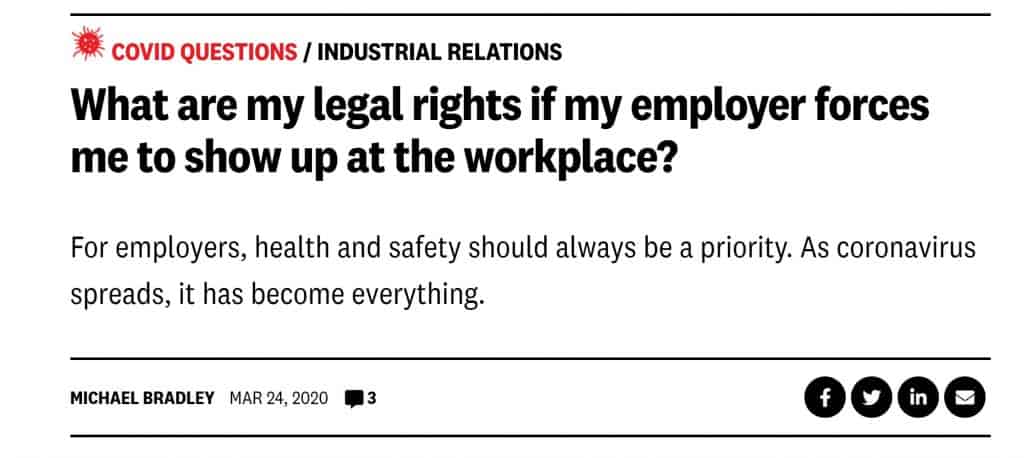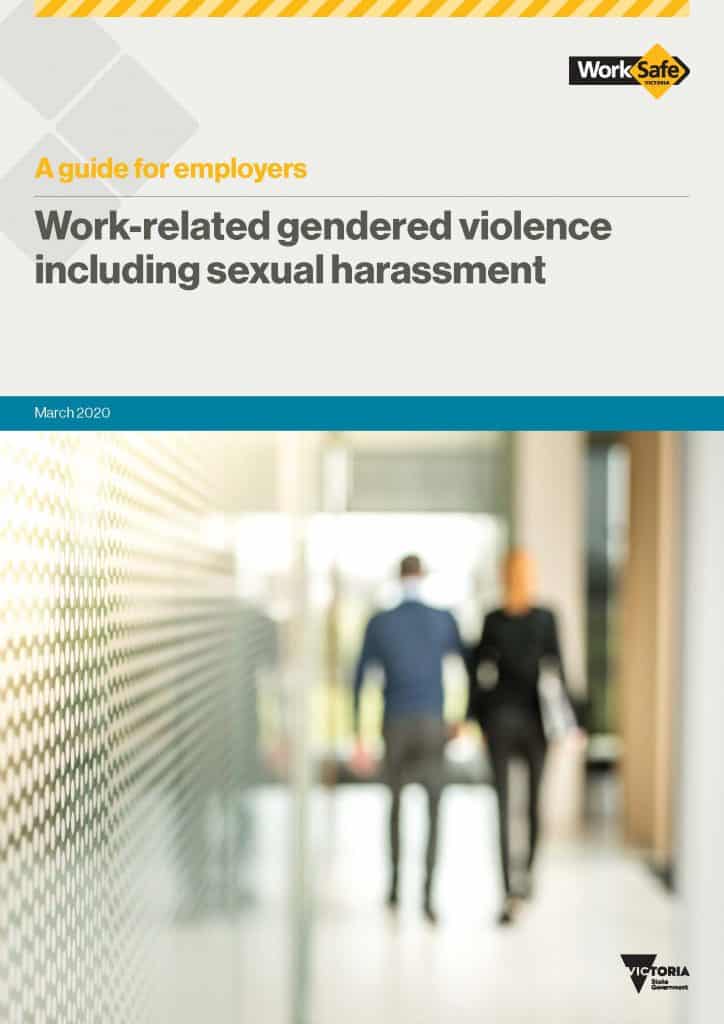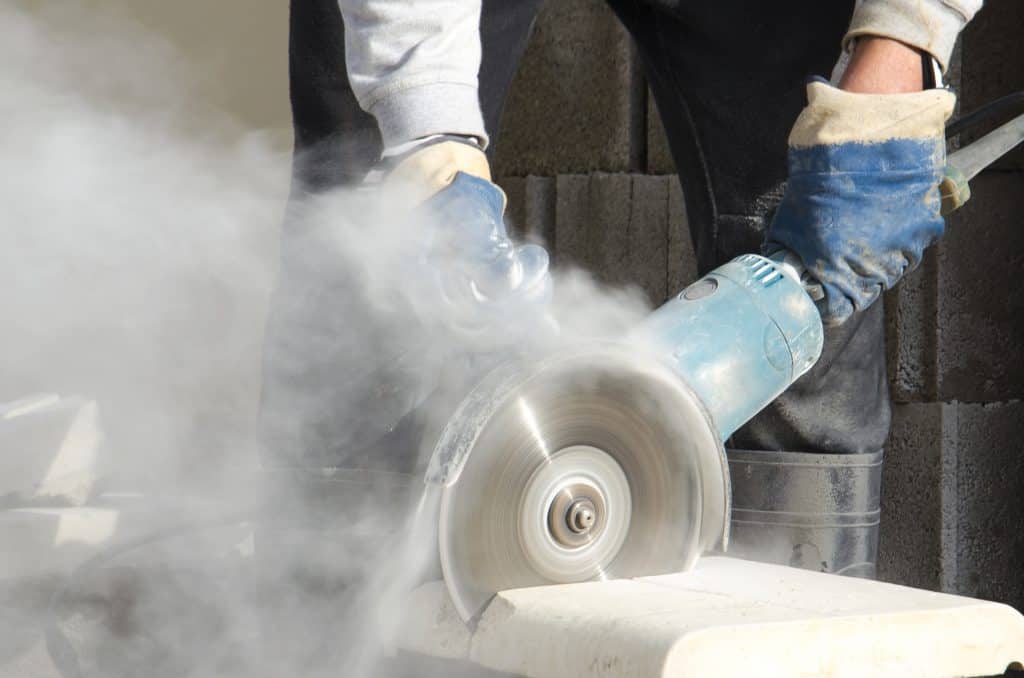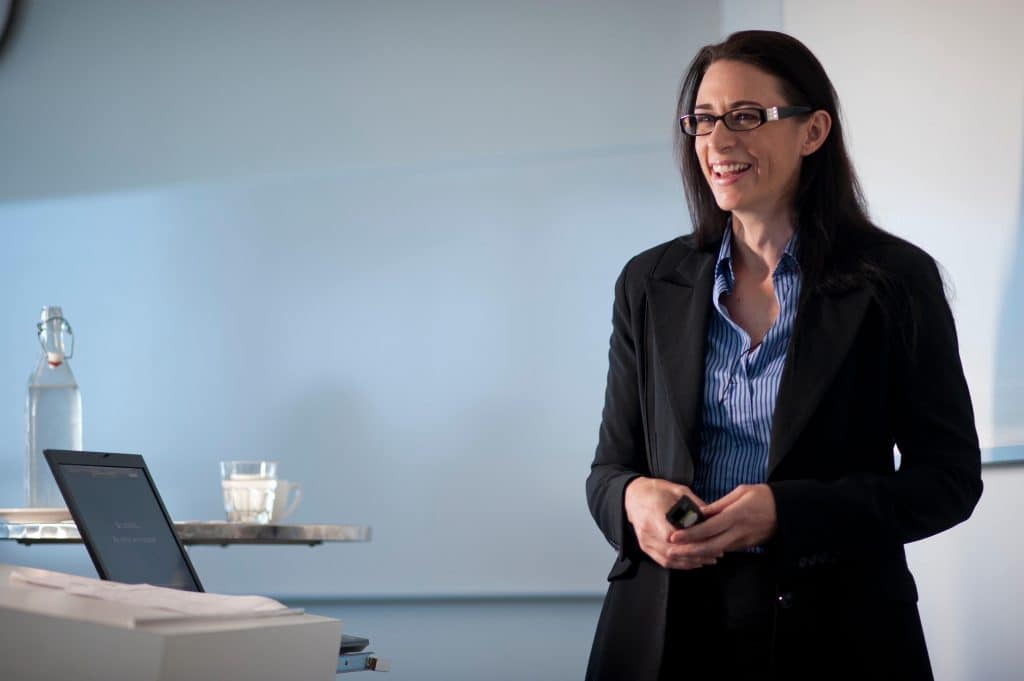
Dr Rebecca Michalak is the founder of PsychSafe, a company advising companies on issues related to the interconnectedness of occupational health and safety (OHS), Human Resources (HR) as well as the psychological hazards and structures at work and of work. Her combination of skills and experience is a new one for Australia and Dr Michalak is quickly becoming a strong influence on workplace health, safety, and corporate governance.
Dr Michalak has accepted the opportunity to provide a more personal insight into what she does and why she does it in the latest in a series of articles about humanising OHS.
Apology: Due to unauthorised reproduction of this article in breach of Copyright, access has been restricted to Subscribers Only. Should you require access to this article particularly, please email the Editor

